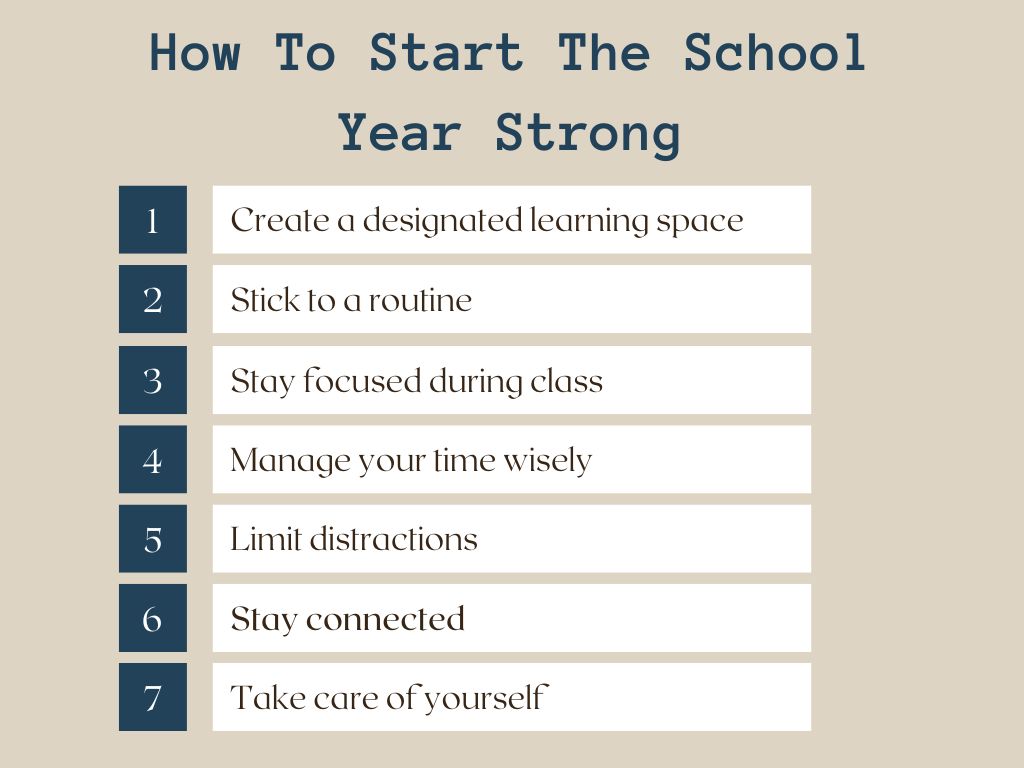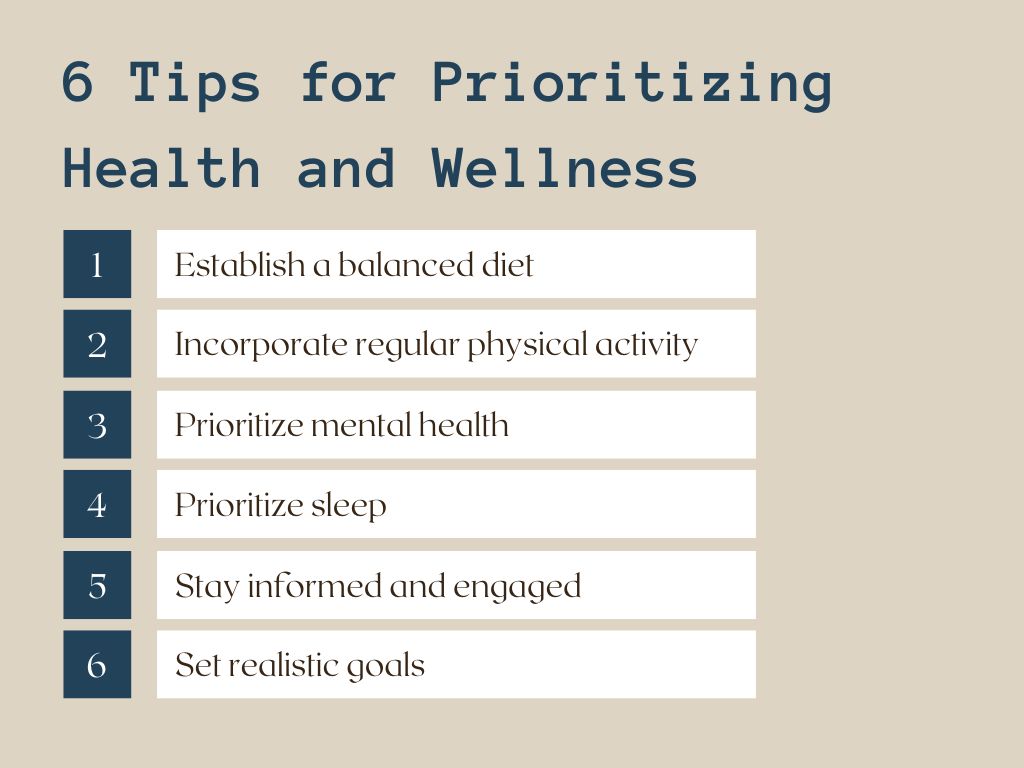What are some of your top goals in life? Many of you are probably saying that getting into college is one of them. However, getting into college is more than just filling out and sending in applications. Below, I have compiled a list of five things you can do throughout high school to give yourself a great chance of pursuing higher education at the colleges you love.
1. Develop good study habits
- Review every mistake you make on tests or assignments and cultivate a growth mindset. It is hard work, rather than talent, that leads to good grades
- Use your many learning styles to your advantage. For instance, as a primarily visual learner with musical knowledge, it helps me to remember concepts by writing down words that sound alike. Click here and here to find your personal learning styles!
- Whether it be offline or online, using a planner is essential to making sure you complete all coursework on time. Personally, I use a paper calendar for big events, a to-do list for personal obligations, and an online notebook for academic related assignments and events.
- Listen and read actively, while you take notes. There are many different ways to take notes–it’s all about finding what works best for you. For instance, I like to make question and answer sheets. When taking notes, feel free to highlight, color code, or draw diagrams.
- Cater your studying towards the content and format of your tests. Some of the study methods that I have used to score well on tests over the years include creating and reviewing questions and flashcards.
- If you are ever having trouble with a certain concept, do not be afraid to ask your teacher for help.
2. Take enjoyable and challenging courses
Most colleges have specific course requirements. For example, some colleges may
require taking four years of math, while others may require just three. When choosing courses, keep in mind the types of courses most colleges require and consider your own interests, as well. For instance, if you were applying to a STEM major, you would likely be required to take four years of math and science. Consider creating a four-year plan at the beginning of high school.
In addition, colleges want to see that you have taken challenging courses and that you have performed well in them. Many high schools offer honors, Advanced Placement, and International Baccalaureate courses. Many colleges also offer dual enrollment programs. AP courses, offered by the College Board, are college-level courses that conclude with tests in May of each year (CollegeBoard). The IB program allows you to earn a diploma signifying that you have studied under a global curriculum (Seigel). The biggest tip I can give you is to only take challenging courses in the subjects that you are interested in. If you are not interested in what you are learning, your studying will not come naturally. As I am concentrated on the liberal arts at my high school, the majority of my advanced courses have been in English and the social sciences.
3. Take standardized tests
There are many different standardized tests available. Below, I highlight these options.
PSAT/SAT
The College Board offers the PSAT (a slightly easier version of the SAT that can be
taken in freshman, sophomore, and/or junior years) and the SAT (CollegeBoard). The
PSAT/SAT focuses on Algebra and evidence-based reading (Heimbach).
ACT
The ACT is the alternative to the SAT. It allows calculator use throughout the entire
math test, and in addition, a science section is included (Heimbach).
SAT Subject Tests
These multiple-choice tests are also offered by the College Board (CollegeBoard). As
presumed by the name, these tests test subject-specific knowledge (CollegeBoard).
Some colleges require them, while others don’t. Based on my general research, subject tests are typically required for specific majors and advanced programs at colleges.
My three-step plan for studying for standardized tests is:
1. Review content
2. Take as many tests as possible
3. Be sure to always review the questions you miss or don’t understand
4. Participate in extracurricular activities
Extracurricular activities are your way to demonstrate to colleges who you are and how you like to spend your free time. There are many different types of activities, from school clubs to competitions and from sports to the arts. Some other great activities to participate in include volunteering, interning, and participating in pre-college summer programs. Unique hobbies can also be wonderful extracurricular additions. No matter what you decide to do, keep in mind that participating in activities is all about quality over quantity. It is also important to demonstrate leadership. You don’t have to demonstrate leadership just by becoming student council president–you could start your own club, for instance. Do not forget to keep a resume of all your accomplishments and activities. Above all, take the initiative to stand out with your passions.
5. Complete a thorough college search
When searching for colleges, try not to pay attention to rankings. After all, college can be a 2+ year experience, so you want to make sure you receive the college education and experience that you want. Typically, students start their college search in junior year. Your list of colleges should include three types of schools: safety, match, and reach (CollegeXpress).
Safety schools are those that you can easily get into, match schools perfectly match your academic and extracurricular resume, and reach schools are those that are harder to get into. While conducting your search, via books or websites, make time to visit colleges while class is in session and attend college fairs.
As a high schooler myself, I know just how complex the college admissions process can be, but I hope these tips will be useful to you, so you can be as prepared as possible for the next educational chapter in your life. Good luck!
Works Cited
CollegeBoard. 2020, https://www.collegeboard.org/.
CollegeXpress. "The Ultimate Guide to the College Search: How to Find Your Perfect
College Match." CollegeXpress, https://www.collegexpress.com/articles-and-
advice/admission/articles/find-college/finding-right-college-match/.
Heimbach, Alex. "Should You Take the ACT or the SAT?" PrepScholar, 19 Feb. 2018,
https://blog.prepscholar.com/should-you-take-the-act-or-the-new-2016-a-guide.
Seigel, Dora. "What Is the International Baccalaureate (IB) Program?" PrepScholar, 4
Nov. 2018, https://blog.prepscholar.com/what-is-ib-international-baccalaureate-
program.







